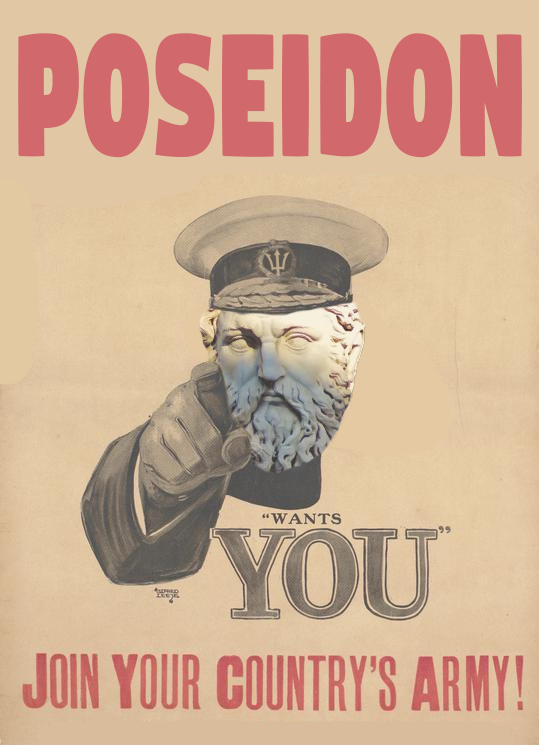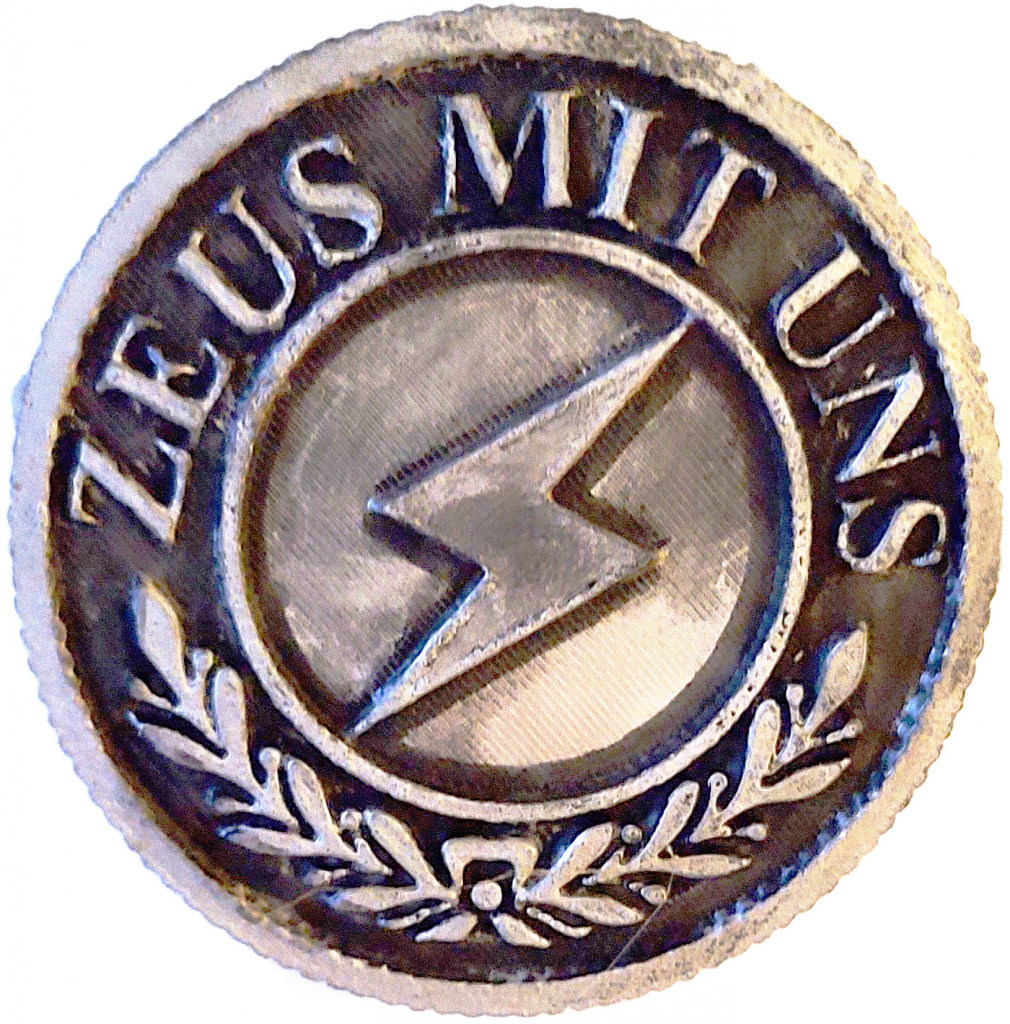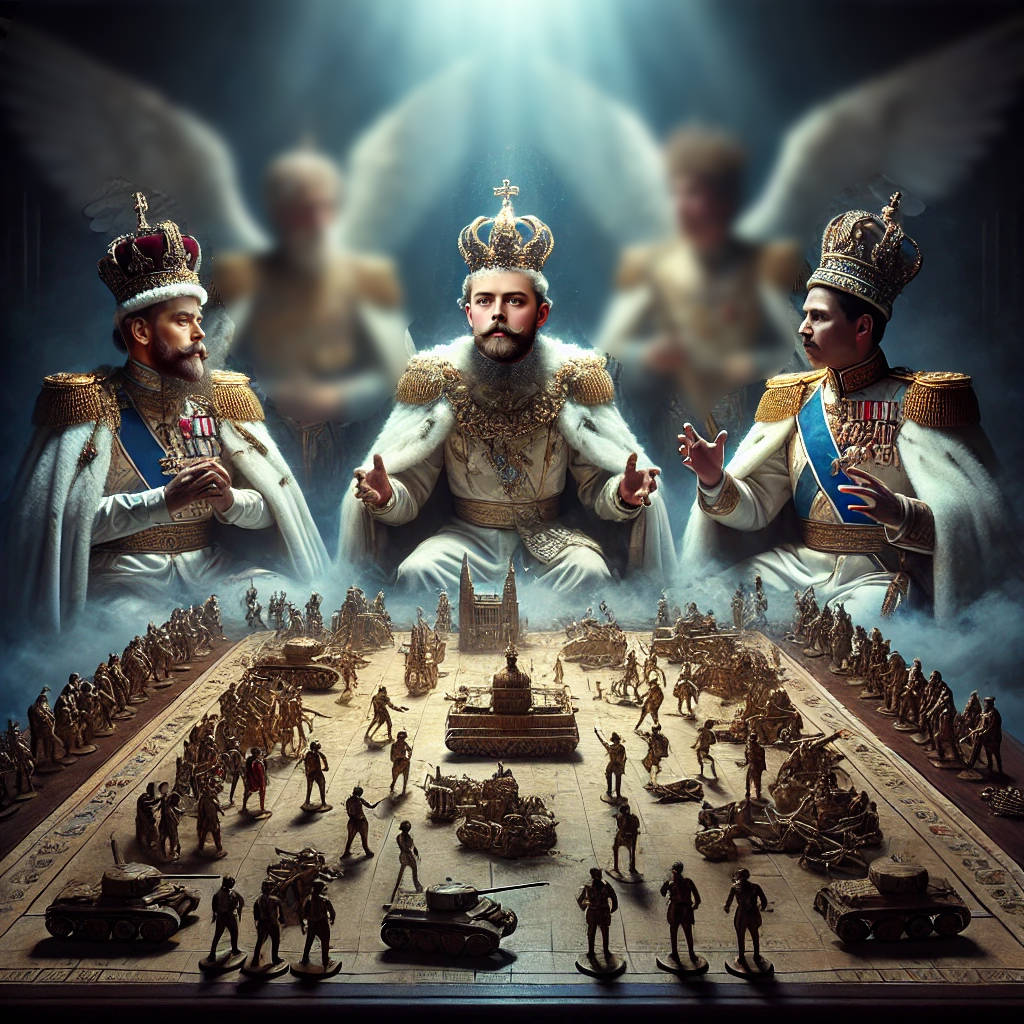A major theme in Ilium Ridge is the comparison of the brothers Zeus, Poseidon, and Hades in The Iliad to the roles of the cousins King George V (Britain), Kaiser Wilhelm II (Germany), and Tsar Nicholas II (Russia) in World War I. Here’s a closer look at the parallels.
In The Iliad, Zeus, Poseidon, and Hades represent different realms of power. Zeus rules over the sky and is seen as the king of the gods, wielding the greatest authority. Poseidon controls the sea, while Hades rules the underworld. Each brother has a distinct domain but they sometimes conflict, especially when their interests overlap or clash. In World War I, cousins George, Wilhelm, and Nicholas also held significant influence, though divided by national borders rather than realms of nature. King George V had authority over the British Empire, a powerful naval force with global influence. Kaiser Wilhelm II controlled Germany, which was a dominant land power in Europe. Tsar Nicholas II ruled Russia, whose vast territories and military strength were significant, though internally challenged. Like the Greek gods, they were connected by shared heritage but often had conflicting agendas.
In The Iliad, Zeus tries to maintain a certain level of neutrality but ultimately sways the course of events by favoring or opposing different sides at different times. Poseidon, on the other hand, is more actively involved, often siding with the Achaeans due to a personal grudge against the Trojans. Hades plays a lesser roles, but is always there to encourage the conflict and collect the souls of the dead. In World War I, King George V was more restrained, aiming to protect British interests while avoiding direct personal involvement in military decisions. Kaiser Wilhelm II, like Zeus, was more eager to assert his influence and played a significant role in the escalation to war, driven by his ambitions for German dominance. Tsar Nicholas II, comparable to Hades, presided over a nation where the war’s toll on life was devastating, and his involvement was overshadowed by internal strife and revolution, leading to his downfall.

In The Iliad, despite being brothers, Zeus, Poseidon, and Hades often disagree. Zeus and Poseidon, in particular, argue about how much to intervene in the mortal world. in Ilium Ridge, the whole interaction between the brothers becomes the equivalent of a videogame (albeit with its own set of rules which must be obeyed), reflecting their ultimate disdain for the mortal world and the puny creatures therein. Similarly, George, Wilhelm, and Nicholas, though cousins, found themselves on opposing sides of a war that pitted the hapless people of their nations against each other. Family bonds did not prevent the escalation of conflict; in fact, some of their personal relationships may have exacerbated tensions. For instance, Wilhelm’s feelings of inferiority and rivalry toward his British and Russian relatives contributed to the sense of competition.

In Greek mythology, the gods’ actions had lasting repercussions for mortals, but the gods themselves were largely unchanged. In the case of World War I, the royal houses of Britain, Germany, and Russia faced significant changes. The war particularly devastated the Russian Empire, leading to the abdication and execution of Tsar Nicholas II, while Wilhelm and the German monarchy were driven into semi-exile. Only the English royals maintained their status, but their authority was even more weakened, until they were reduced to the sideshow we see today.
In sum, the roles of Zeus, Poseidon, and Hades in The Iliad and the roles of George, Wilhelm, and Nicholas in World War I can be seen as parallel in terms of their divided authority, familial tensions, and influence on the conflict’s course and outcome. Both sets of figures highlight how family ties did not prevent rivalry, and how their individual ambitions shaped the destinies of those under their rule.

Leave a Reply